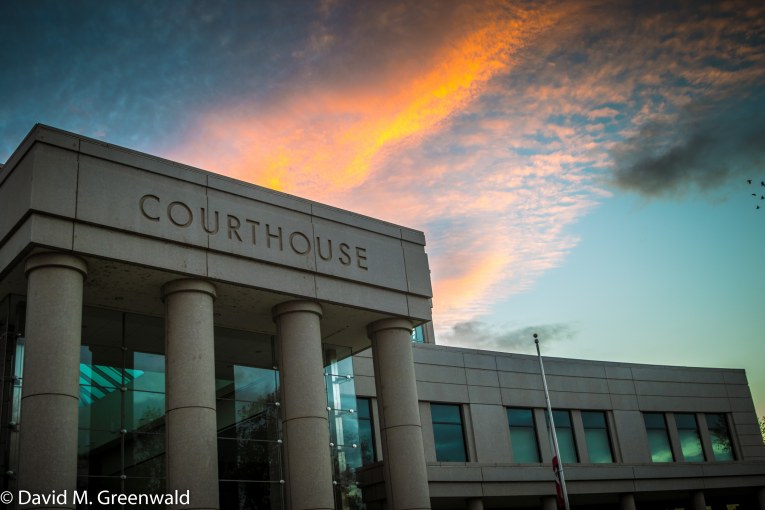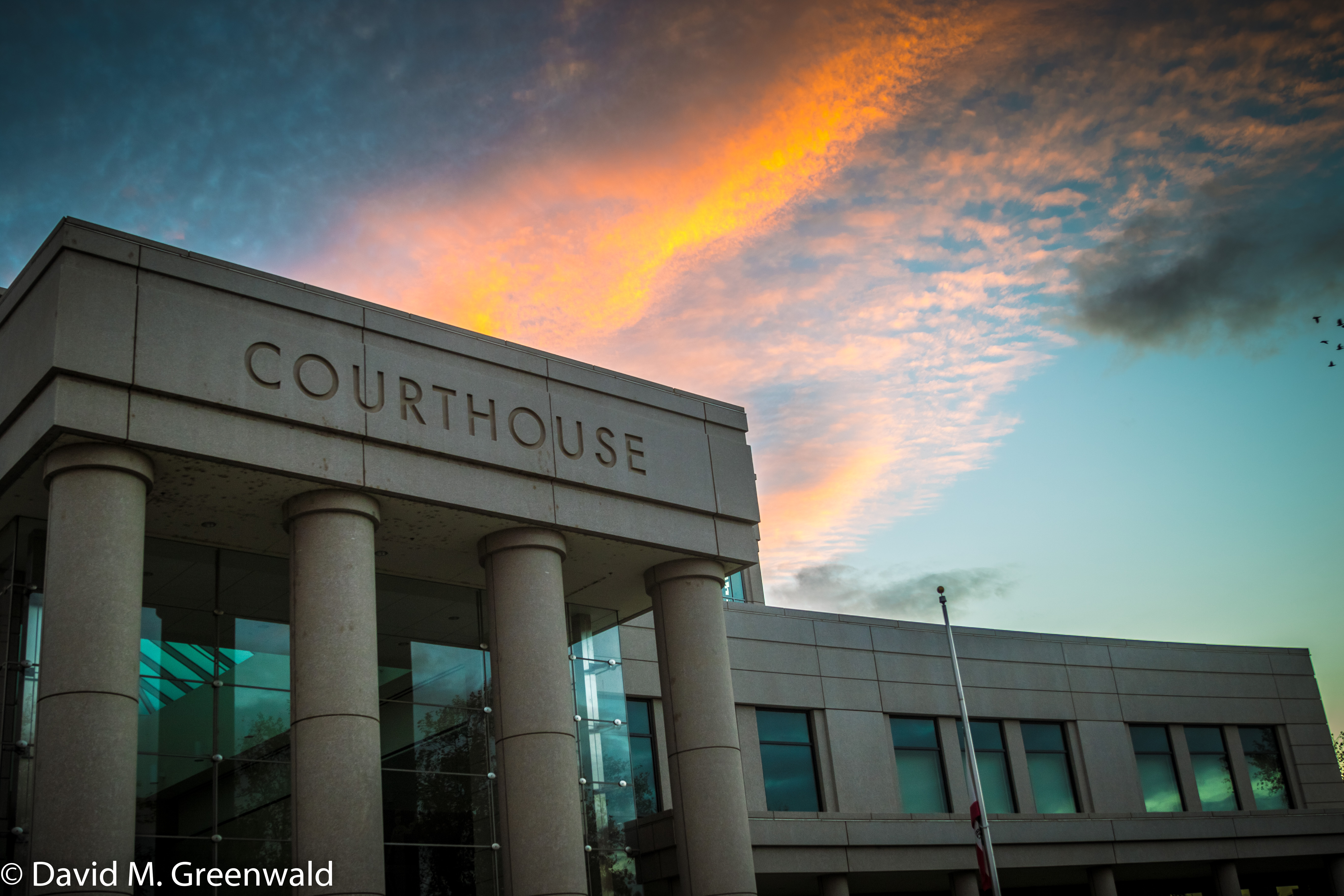
 By Gwynneth Redemann
By Gwynneth Redemann
WOODLAND, CA- Judge David Rosenberg here in Yolo County Superior Court last week denied a motion by the defense to suppress DNA evidence collected from a cup used by Lot Guerra during an interview at the Yolo County Sheriff’s Office because, the judge said, Guerra “did not have an expectation of privacy.”
Lot Guerra, charged with multiple felonies including burglary, assault with intent to commit rape, and sexual battery, was transferred from Los Angeles to Yolo County on Aug 28.
According to testimony from Yolo County Detective Randall Krantz, Guerra arrived by car at the Yolo County Sheriff’s Office, where he was offered some water after the six-hour car ride.
 Guerra drank many cups of water during the interview. At the end of the interview, Detective Krantz “booked the cups into evidence” because the cups contained DNA evidence.
Guerra drank many cups of water during the interview. At the end of the interview, Detective Krantz “booked the cups into evidence” because the cups contained DNA evidence.
Private Defense Attorney Steve Whitworth asked Detective Krantz whether he was the officer that “Mirandized” his client Guerra, and Krantz said yes.
Whitworth continued, asking if “in that Mirandizing, is there any conversation about DNA or abandonment of items that may have DNA on them?” And Detective Krantz replied, “No, there is not.”
Whitworth followed up by asking if he ever informed Guerra that anything left behind in the room could be used against him. Again, Detective Krantz responded with a “no.”
Whitworth proceeded to ask about the details of the trip from Los Angeles to Yolo County, but Detective Krantz knew little about the trip because he was not the detective who was there.
The prosecution, led by Stephanie Allen and supervised by Deputy District Attorney David Robbins, called Corporal Ryan Bowler, another detective, in this case, to testify.
Allen asked Corporal Bowler about the details of the trip from LA to Yolo County, and Bowler said they had stopped twice during the six-hour drive. Bowler had provided Guerra with a meal from McDonald’s that came with a medium drink. Other than this meal, Guerra was not provided any other food or drink.
According to Bowler, the group drove directly to the Yolo County Sheriff’s Office and Guerra was offered a chance to use the restroom and drink water provided by the officers before the interview.
In the video recording of the interview provided by the prosecution, Guerra is seen drinking multiple cups of water. He is later escorted by a female police officer out of the room, while the cups are left behind on the table.
During the cross-examination, Defense Attorney Whitworth asked whether Bowler had told defendant Guerra that he could take the cups as “his property.” Bowler indicated that he had not told Guerra this information.
Whitworth then asked why [Bowler] provided Guerra a meal during their travels and if any other drinks had been provided to Guerra during the car ride.
Judge Rosenberg interjected, seemingly annoyed with the length of this motion hearing, stating, “Because people get hungry. Next question?”
Whitworth continued, asking Bowler “you’ve been trained that if you deny a person food or drink or to use the bathroom [while in custody] that that could be coercive, correct?”
The prosecution objected to this question, stating that “it is clear that all procedures were followed” and that she “doesn’t see how this is relevant to the cups.” The question was sustained by Judge Rosenberg.
Whitworth continued, “Did you offer Guerra any other drinks besides the drink that came with the meal?”
Bowler stated, “No.”
“And so for 6 hours, the only drink that you are aware of that he had, including the interview time, was the soda he drank with his meal,” asked Whitworth.
It was eventually concluded that that was in fact the only drink that Guerra had between 8 a.m. and the time of the interview.
In the final comments of the motion, Whitworth stated, “I don’t think law enforcement can place citizens in a position where they take them, deprive them of food and drink, and then [later] provide them with food and drink and then use that as a weapon to pierce the Fourth Amendment or as evidence against them.”
Judge Rosenberg stated, “It’s an issue I don’t see that often. However, in viewing what I’ve seen in the video and carefully reading the briefs submitted by counsel, in this particular case, the defendant had no reasonable expectation of privacy in the used water cups that he drank from while he was in custodial interrogation.
“The motion to suppress is denied.”
This case will reconvene for a settlement conference on Dec. 6 in Yolo County.

Does anyone really have a problem with this?
What about his right to healthy food? What if he was a vegan?
Was it gluten-free?
Sounds like it might not have been a “Happy Meal”.
While they were there, did they do anything about the “Ham Burglar”? Or, look into any graft from Mayor McCheese?
We who read these summations of events are being guided towards supporting a defense argument that the defendant was illegally deprived of his constitutional rights during the custodial process. Among these rights violations was the denial of basic human needs such as drinking water.
Usually, it is the questions that are not asked, the relevant points not raised, that is the most revealing. For example, the defense attorney never asked either custodial deputy the question of whether the defendant ever asked for water.
Then there are the curious and ambiguous phrases, “multiple” and “many” cups of water. The writer is guiding and directing our thinking and judgment toward a vision of the defendant being quite thirsty, part of the scenario of neglect and abuse while in custody.
The interview was videotaped, including the multiple/many cups consumed. The exact number of cups of water is retrievable by a review of the irrefutable physical evidence. Instead of just repeating this vague assertion to discredit the prosecution, why not first review the videotape of the defendant drinking and start counting?
Finally, the deliberately crafted question by the defense, ” . . . . any other drinks had been provided to Guerra during the car ride.” “Provided” is the keyword here, and raises a red flag as to the credibility of this entire story.
During the journey from Los Angeles, the defendant and his escort made two stops. One was for a meal and beverage. The defense never pursued a line of question on the location and purpose of the second stop. An experienced privately retained trial lawyer with the opportunity to pose a relevant question but never did. Red flag.
Is it just possible that the second stop was a “potty break” and the defendant used the restroom and had access to a sink and drinking water? But the water source was never provided to him, he had to use his own initiative.
The decision of defendant “did not have an expectation of privacy.”, is very credible.. so many examples in TV/movies, where glasses, kleenexs, etc. were offered to suspects, and the ‘used items were then processed for DNA ‘samples’ (or fingerprints) were examined/tested/used as evidence is incredible… the defendant was not very bright to not “police his brass”…
Even if a suspect scratched their head, providing dander, could be used if collection/chain of custody standards were met. If I was an attorney (and frankly, I’m not [two counts]) I would have focused on chain of custody, not the means of collection…
Questioning the collection of evidence was “nice try, no cigar”… I suspect that any DNA would be collaborative, and other evidence would be probative.
The judge made a good call… doesn’t mean the person is guilty, but it is fair ‘evidence’